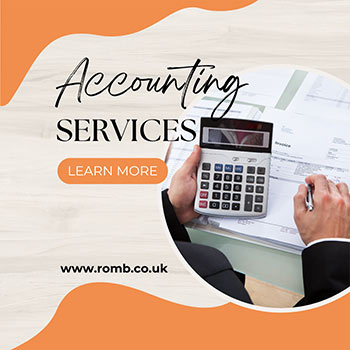
In recent years, you may have heard whispers about a “shortage of accountants” or even read headlines suggesting that the profession is vanishing. But what does this mean, and why should it matter to you—as a DIY home improver, a young professional upgrading their living space, or even a skilled tradesperson managing a small business in the UK? The disappearance of accountants may sound like an abstract concept, but it has very real consequences for people from all walks of life.
So let’s break it down in terms you can understand. From delays in tax filings to difficulties getting financial guidance when renovating or growing your business, the disappearing act of accountancy professionals is already impacting homes and businesses across the UK. In this blog post, we’ll explore what’s really happening in the accounting world and why you should care—even if your passion lies in design, architecture, or getting your hands dirty with renovation projects.
Changing Career Preferences: A Decline in Numbers
The world of finance and accounting used to be a stable, well-respected career choice. But in the past decade, fewer students have been choosing this route. With the rise of more glamorous or creatively satisfying fields such as marketing, digital design, and tech development, young talent has increasingly turned away from the number-crunching world of ledgers and payroll systems.
Part of this is generational. Today’s younger professionals often value flexibility, work-life balance, and meaningful work. For many, the stereotypical image of an accountant hunched over tax forms in a grey office doesn’t spark much excitement or purpose. This shift has led to declining enrollment in accountancy courses across UK colleges and universities.
For tradespeople or small business owners, this trend can be seriously concerning. As fewer qualified accountants enter the market, wait times for financial services increase, and costs go up. That simple tax return that used to take a week now takes over a month—and costs twice as much!
Automation and Accounting Tech: A Double-Edged Sword
Cloud-based software such as QuickBooks, Xero, and Sage has revolutionised bookkeeping and accounting tasks. These tools allow everyone from self-employed builders to interior designers to manage their own finances with relative ease. But while technology has made the job simpler, it has also made the role of the accountant seem redundant—at least on the surface.
This digital shift has created a paradox. On one hand, it empowers small business owners to handle their own finances more efficiently. On the other, it has led to fewer people entering the profession, believing that machines and AI will “take care of it.”
The problem? While software is great for day-to-day tasks, nothing replaces the strategic thinking, regulatory know-how, and tax optimisation advice of a real accountant. Automation handles the numbers—but real insight still requires a human with expertise.
Burnout and Overwork in the Profession
Like many white-collar professions during the pandemic, the accountancy sector saw increased workloads and pressure. From handling furlough schemes to managing ever-changing government support packages, accountants were at the frontlines of business survival during unprecedented times.
This led to mass burnout. A survey by the Chartered Accountants Benevolent Association found rising cases of mental fatigue, especially during tax season. Some left the profession entirely. Others scaled back to part-time freelancing or solo consultancies, reducing overall capacity in the market.
For someone renovating their home or growing a local business, this means that it's now more difficult to find an experienced accountant who’s actually available. Many seasoned professionals are fully booked months in advance—or have left the field altogether.
The Impact on Home Improvers and Small Business Owners
If you’re redesigning your living space or running a niche product line of handmade furniture or lighting, you might wonder: how does this affect me? Quite a bit, actually. From applying for VAT registration to understanding tax reliefs for buying tools or materials, the advice of a qualified accountant can save you thousands.
Homeowners who take on large renovation projects often forget that financial planning is just as critical as colour schemes or floor plans. Without accounting advice, it’s easy to overspend, miss eligible tax breaks, or run into trouble when applying for financing.
Similarly, tradespeople expanding their business need accurate cash flow forecasting, payroll setup, and end-of-year reporting. The shortage of accountants adds stress to what is already a demanding and time-consuming profession.
How the UK Industry Is Responding
Accounting bodies such as the ICAEW and ACCA are actively working to reverse the trend. Campaigns promoting the benefits of the profession—including remote work, good salaries, and job security—seek to attract younger people. Meanwhile, new tech-enabled training programmes aim to make accounting more engaging and accessible.
Some firms are also experimenting with hybrid roles that combine finance with business consulting or strategic planning, aiming to demonstrate that modern accounting is about far more than just number crunching.
Additionally, we’re seeing stronger collaborations between software companies and finance professionals to create “blended” services that offer tools plus human oversight. So even if you’re using Xero or Sage, you’ll still have access to expert help when needed.
What You Can Do: Practical Steps for Tradesmen, DIYers, and Designers
If you’re running a project or business, having a good accounting system is critical—even if accountants are harder to find. Here are some tips:
- Get digital now: Invest in user-friendly software like QuickBooks or FreeAgent, and learn the basics of invoicing, expenses, and payroll.
- Book early: If you need an accountant, reach out months in advance and lock them in before busy periods, especially before tax season or financial year-end.
- Go niche: If you're a designer, tiler, or builder, look for accountants who specialise in your industry. They'll better understand your needs and can deliver tailored advice.
- Attend workshops or webinars: Many local enterprise offices offer short courses in finance for small business owners or freelancers. These can be invaluable.
- Join trade associations: Groups often have partnerships with accountants and offer professional guidance as part of membership.
Conclusion: The Accountant Isn’t Gone—But Different
While it may seem like accountants are disappearing, the truth is more nuanced. The profession is evolving, becoming more specialised, and adapting to changing technology and workforce expectations. For homeowners, designers, and tradespeople, this means it’s more important than ever to be proactive, digitally savvy, and financially informed.
Whether you’re building a sunroom, launching your own home styling consultancy, or managing dozens of daily callouts, strong financial foundations are key to your success. When human accountants are limited, software can help—but nothing beats combining both for the strongest results.






